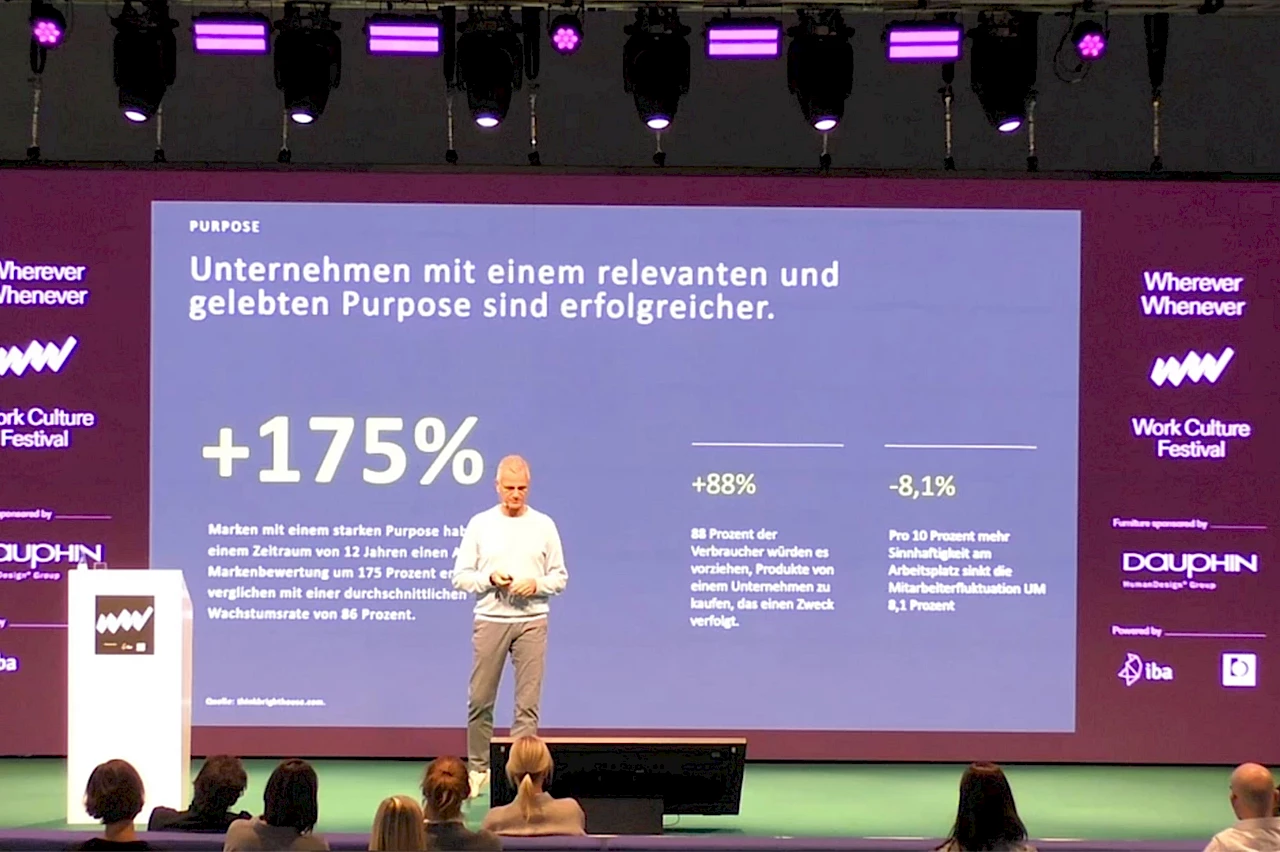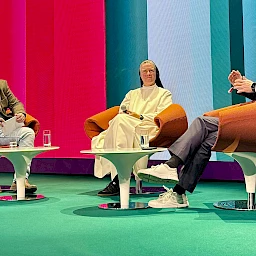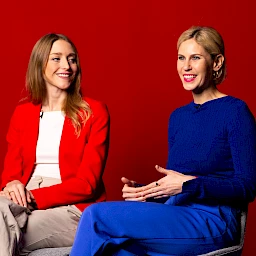In his presentation at the Work Culture Festival, Michael Trautmann, entrepreneur and co-founder of the podcast On the Way to New Work, asked how work can be designed in such a way that it supports people and promotes their potential. Using his own experiences and interviews from his podcast, he showed that New Work is not just a question of where you work or flexible working hours, but instead requires a fundamental shift in how we understand work.
In search of a new understanding of work
Trautmann describes his involvement in New Work as a personal process lasting over seven years, which began with the search for a suitable office for his agency. During this time, he has held more than 450 discussions with people from business, science and society who look at the working world of tomorrow from different perspectives. For him, New Work is a necessary response to developments such as the shortage of skilled workers, growing dissatisfaction in the world of work and the desire for meaningful work. He referred to a Gallup poll, which showed that 19% of employees in Germany have resigned internally and 69% only work in line with basic expectations.
New Work as a comprehensive approach
Michael Trautmann sees New Work as a comprehensive approach that goes far beyond flexible working time models or working from home. At the centre is the fundamental question of the meaning and purpose of work. According to Trautmann, companies that position themselves clearly and follow an overarching goal—purpose-driven organisations—not only achieve faster growth, but also higher employee retention. New Work therefore means rethinking work on an individual, collective and social level. Trautmann divides this approach into three stages: Better Me describes the personal examination of one’s abilities, values and needs. Better We focuses on improving collaboration within the team, based on trust and an open feedback culture. Better Society, finally, stands for the responsibility of companies towards society, for example through contributions to social justice, sustainability or education.
Psychological safety as the basis for successful teamwork
Another topic was the question of how teams can work together effectively in a complex working environment. Trautmann referred to the Google study Project Aristotle, which identified psychological safety as the most important success factor, ahead of clear goals, roles and reliability in the team. Psychological safety describes the confidence to be able to openly express one’s ideas, doubts and criticisms without having to fear negative consequences. Continuous learning and genuine innovation are only possible in such an environment. Critical contributions must also be welcome and mistakes should be seen as learning opportunities. A key role is played by managers who themselves deal openly with uncertainties and value critical contributions. Psychological safety does not mean avoiding conflicts, but rather promoting an open and constructive approach to different perspectives.
New demands on offices
In his presentation, Trautmann also explored the question of how working environments need to be designed in order to meet the changing requirements for collaboration and individual productivity. He cited Building 20 at the Massachusetts Institute of Technology (MIT) as an example. Originally erected as a temporary building, over the decades it has developed into a centre for scientific and technological innovation. This is because the users of the building were free to design the rooms according to their needs. This flexibility led to intensive interdisciplinary communication, which contributed significantly to the development of new ideas. Trautmann sees this example as a blueprint for the working world of the future. Instead of employing the classic approach of permanently allocated office space, you need to make rooms flexible so that they support different forms of work—from concentrated individual work to creative teamwork. The quality of the rooms plays an increasingly important role here. Given the possibility of working from home, offices must offer real added value in order to remain attractive as a workplace. This added value could be created through better technical equipment, an appealing design, pleasant acoustics and specifically designed meeting zones. It is less about the size of the spaces, but rather about their functionality and the opportunity to actively use the physical environment for better collaboration and more creativity.
Leadership culture in transition
Using the story of Insa Klasing, former CEO of KFC Germany, Michael Trautmann showed how traditional leadership models are changing. After a riding accident, Klasing had to take several weeks off work, a situation she could hardly have imagined before. But instead of coming to a standstill, the company continued to operate. Her management teams took on responsibility, made independent decisions and worked effectively. This experience caused Klasing to create a new management model based on trust and autonomy. The role of managers is changing. Instead of controlling everything, they set clear goals and framework conditions, while the how, when and where of implementation is left to their teams. Managers are thus becoming enablers who remove obstacles, provide resources and set the organisational framework in which the teams can work independently. This understanding of leadership requires trust and fundamentally changes the role of the manager: away from the classic decision-maker and towards the coach and companion who promotes the development of the teams and strengthens personal responsibility.
At the end of his presentation, Michael Trautmann emphasized that New Work should not stop at questions of working hours or room design. Rather, it is about rethinking work in the context of social responsibility. Companies are called upon to make an active contribution to the major challenges of our time, for example in the areas of climate change mitigation, education and social participation. Trautmann chose the modern roundabout as an image for a future-oriented working world. Instead of relying on rigid rules and control, companies should create scope for employees to act independently. Trust thus becomes the main principle. Shaping the world of work is not a closed process, but a continuous path, open to all who want to participate.






